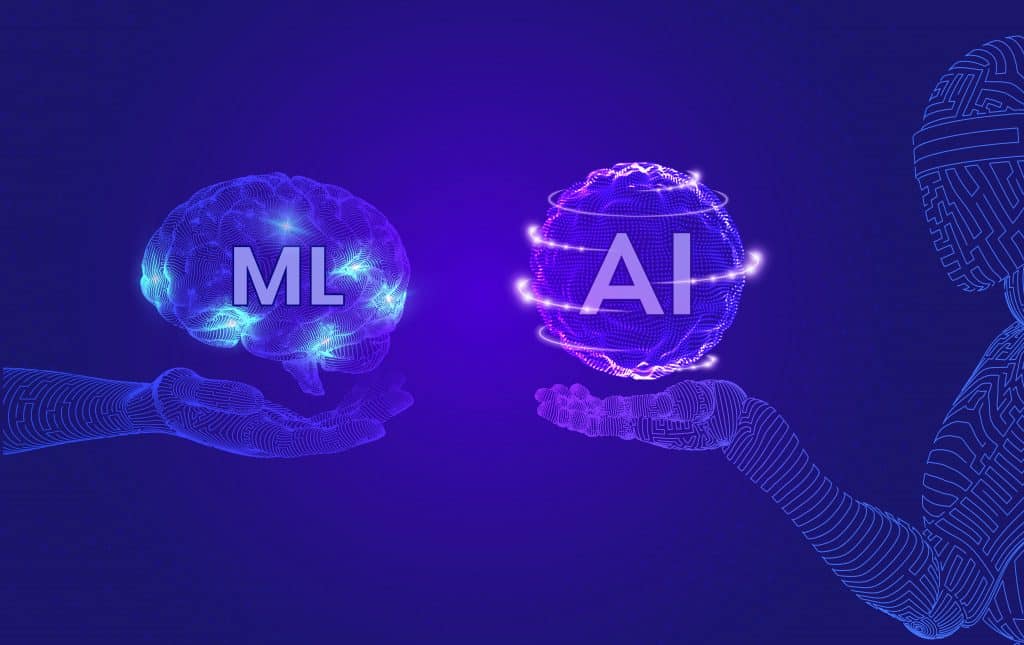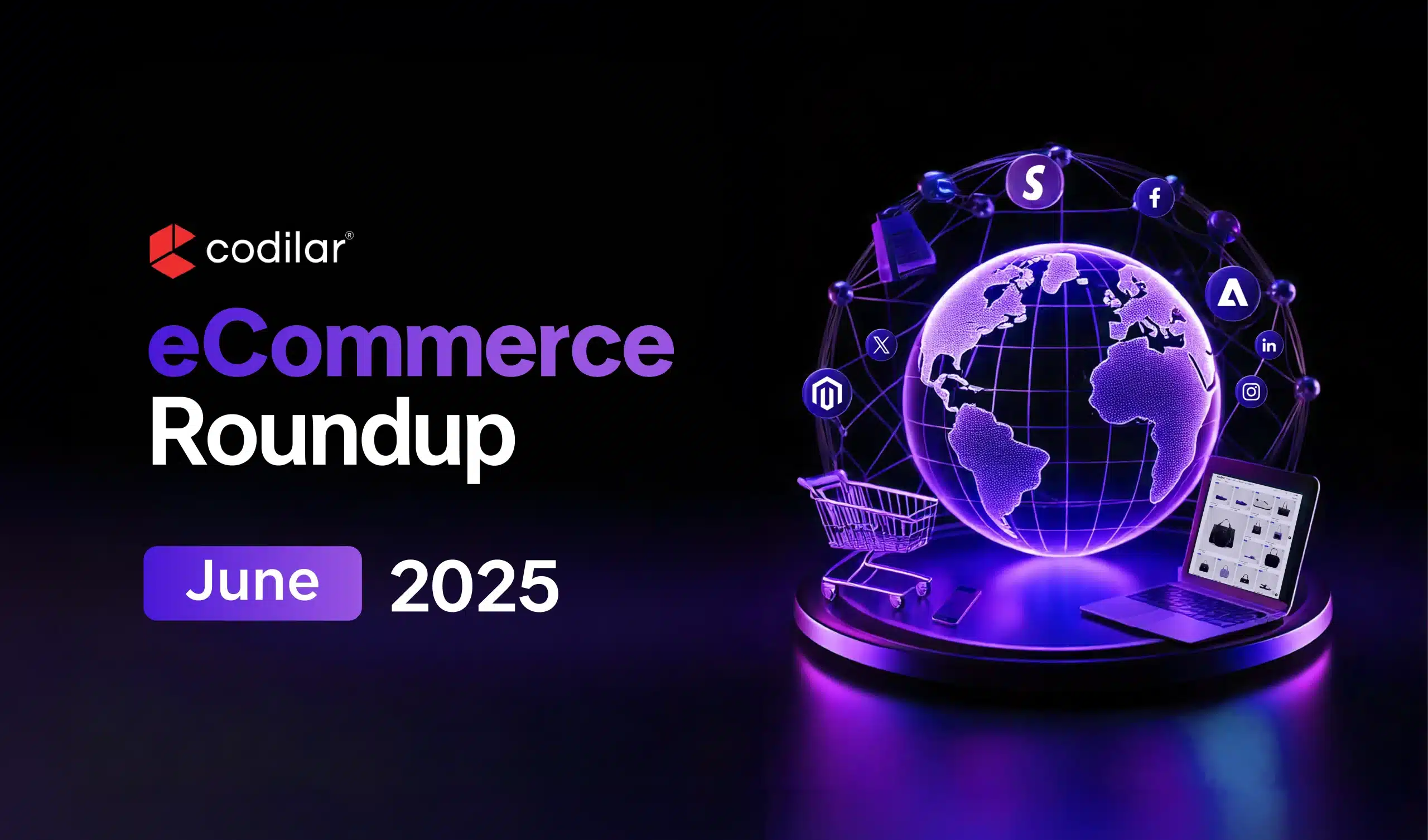Standing today in 2024, staying ahead in the cut-throat e-commerce competition demands a strategic approach to customer engagement that turns your business into consumers’ first choice. Artificial intelligence (AI) and machine learning (ML) have emerged as two powerful tools to achieve personalization. By enabling businesses to deliver custom-built experiences to individual consumers, these technologies are helping boost customer satisfaction and conversion rates organizations could only dream of before.
What is E-Commerce Personalization?
From customized product recommendations to tailored website content or marketing communications, personalization is the current buzzword of the e-commerce town. e-commerce personalization is the process of creating individualized user experiences based on demographics, purchase patterns, behavioral data, social media interactions, etc. The end goal being an ecosystem where customers feel valued and considered, it adds to the possibility of increasing purchase and brand loyalty,supported by optimized reliable Magento Hosting solutions.
AI and ML in E-Commerce Personalization

As businesses can analyze huge chunks of data in minutes using AI and ML, these two technologies have cut down operational time and cost by a huge margin. On top of that, these smart systems can identify trends and patterns more accurately and consistently than the finest human analyst, making room for more error-free and effective personalization.
1. Enhanced Product Recommendations
A McKinsey study showed that 35% of Amazon’s entire revenue is generated by the e-commerce giant’s product recommendation engine! Considering the tremendous potential of product recommendation in increasing sales, it’s become one of the most common yet crucial applications of AI in today’s e-commerce. From customers’ purchase history, browsing history, and preferences, the smart AI algorithms can pick products with the highest likelihood of being purchased. Partnering with a Generative AI Development Services provider can further optimize these recommendation engines, ensuring more accurate and personalized suggestions. Incorporating machine learning services can further optimize these recommendation engines, ensuring more accurate and personalized suggestions.
Actionable Tip: By implementing AI-powered recommendation engines like Dynamic Yield or Amazon Personalize, you can get personalized product suggestions, resulting in improved conversion rates and increased revenue.
2. Personalized Marketing Campaigns
“Marketing is probably the most critical aspect every e-commerce business wants to capitalize on. AI also helps you streamline the marketing efforts by creating personalized campaigns that cater to the individual needs of consumers. By categorizing customers into different segments like purchase history, demographics, and behavior, machine learning algorithms can empower you to launch hyper-targeted ad campaigns that are more likely to convert.” Says Jeff Romero, CEO of Octiv Digital
Actionable Tip: HubSpot and Mailchimp are a couple of AI-driven marketing tools that can offer the creation and automation of personalized email campaigns. From audience segmentation to message customization for different customer groups, the possibilities are limitless.
3. Dynamic Pricing Strategies
“Dynamic pricing is yet another key area of personalized e-commerce with a deep impact from AI and ML. The AI algorithms analyze competitor pricing, customer behavior, demand fluctuations, and real-time data to determine and control product pricing in real-time. By taking into account the customer’s browsing history, purchase history, and payment capability, dynamic pricing ensures your prices are competitive while helping you maximize the profits.” Says Andy Fryer, Co-Founder of Easy Signs
Actionable Tip: Prisync or Omnia Retail can be integrated into your existing (or new) system to automatically adjust the pricing by studying real-time data.
4. Predictive Analysis
“AI and ML leverage historical data to make future predictions, trends, and forecasts in e-commerce supply chain management. The predictive algorithm can forecast demand fluctuations, streamline logistics operations, and optimize inventory, minimizing out-of-stock products and maximizing revenue through improved customer satisfaction.” Says Jessica Shee from iboysoft.com
Actionable Tip: Adobe Analytics, Google Analytics 360, and IBM Watson are some predictive analytics tools to use for obtaining basic to advanced predictive analytics for your e-commerce business.
5. Fraud Detection and Prevention
“Fraudulent activities are a big part of e-commerce, and the smart algorithms from AI and ML can detect and effectively prevent identity theft, account takeover, and payment fraud, to name a few. By analyzing transaction data and signals, such as user patterns, the AI can flag malicious and suspicious activities while flagging them for further investigations. AI image finder also plays a key role in fraud detection by identifying stolen product images and fake listings that deceive buyers.
By detecting fraudulent activities in advance, e-commerce platforms can protect customer data, further concretizing trust and loyalty.” Says Danelle Devine, Director of Business Development at COMPAX
Actionable Tip: You may opt for Adobe Fraud Protection or Kount to leverage their machine-learning capabilities to prevent fraudulent activities while analyzing transactions in real time.
6. Visual Search and Live Search
In the quest to achieve the best-in-class customer experiences, visual search and live search offer exceptional results. While visual search employs AI technology to search products from the catalog through images instead of text—by identifying and matching visual features—live search, powered by eCommerce search autocomplete, offers search-as-you-type results. Both of these search functions are intended to improve customer engagement and experience with the power of AI.
Actionable Tip: Integrating Adobe Sensei GenAI is a great way to implement smart search functions to your e-commerce platform, enhancing its usability and engagement.
7. Customer Service and Support
By leveraging natural language processing (NLP), AI chatbots and virtual assistants can refine customer experience with automated responses. It understands customer inquiries in real time through machine learning and provides a humane response. Through automated AI response, answering queries, resolving customer complaints, order processing, and other tasks can be automated and made more efficient, reducing response time and improving customer satisfaction.
Actionable Tip: Solutions like Zendesk or AEM integrated with Adobe Sensei can be efficient options to deploy AI chatbots on your e-commerce platform for delivering personalized customer service and support to handle complex issues without involving human resources.
Real-World Examples of Personalized E-Commerce
Amazon

Being the pioneer and leader in the global e-commerce industry, Amazon constantly deploys robust technologies to improve customer experience. Its product recommendation engine is one such example. It uses AI to suggest products based on users’ browsing and purchasing history. Highly personalized and relevant, the recommendation engine turned into a significant driver of the company’s success, contributing 35% of its total revenue.
Sephora

The virtual try-ons and personalized product recommendations from Sephora are great uses of AI to achieve enhanced customer experience. Moreover, Sephora Virtual Artist (its AI Chatbot) helps with virtual try-ons while providing personalized recommendations, depending on their individual skin tones and preferences.
Netflix
Although not an e-commerce platform, Netflix’s content recommendation is the result of an exceptional use of AI. By analyzing the user ratings, preferences, and viewing history, the AI algorithms of the streaming giant curate TV shows and movies aligned with the individual tastes and preferences of the viewers. This ensures significant growth as it leads to user engagement and satisfaction.
Spotify
Spotify is yet another example of a platform offering extraordinary personalization to its users. The listening habits, favorite genres, and personal playlists are taken into consideration to curate to build custom, personalized playlists, weekly discovery music lists, and release radars to cater to each user’s music preference. It results in encouraging users to stay more on the platform while exploring new artists and genres in the future.
The Future of E-Commerce Personalization

AI and ML’s potential in e-commerce is unfathomable, and most of it is untapped even today. That being said, the future of AI and ML in e-commerce personalization seems to be eventful with more sophisticated technological advancements and personalization strategies.
Hyper-Personalization
By delving even deeper into personalization, the AI and ML algorithms will enable granular levels of shopping personalization, employing real-time data and contextual factors. With these advanced AI applications, businesses can deliver superior experiences by hyper-targeting customers.
Voice Commerce
With the use of virtual assistants and AI chatbots on the rise, AI will be the frontrunner to bring innovation and success to voice commerce practices. With the likes of Alexa and Google Assistant, AI can interact in real-time to resolve queries, provide product recommendations, offer personalized assistance, etc., making online shopping easier than ever.
Collaborative Filtering and Social Commerce
The collaborative filtering driven by AI will be a game changer in social commerce, enabling users to discover products and services through their individual social network’s behavior and preferences. According to experts, social commerce will turn into an inseparable part of personalized shopping, facilitating smooth transactions while promoting engagement.
AR and VR Integration
Augmented Reality (AR) and Virtual Reality (VR) have already taken the world of e-commerce by storm, and they will continue to do so with their promise to deliver immersive shopping experiences. While AR allows product visualization in the real-world environment, VR delivers fully immersive virtual shopping experiences, such as virtual clothes try-ons or virtual store exploration. Together, these two technologies deliver superior customer engagement and satisfaction while reducing product returns.
AI and ML are the Stepping Stones to the Future of E-Commerce
“The Fourth Industrial Revolution is reshaping every industry and calling on each of us to rethink how our companies operate. AI, ML, and personalization are at the core of this transformation.” – Marc Benioff, CEO of Salesforce
AI and ML are transforming the digital shopping experience by empowering businesses to deliver personalization to their customers. From dynamic pricing to automated customer support and smart product recommendations, these technologies can drive sales and create lasting impressions.
For those looking to stay ahead in digital competition, exploring a Generative AI Course can provide invaluable insights into leveraging AI and ML effectively.
Wrap Up
AI and machine learning are transforming online shopping, making it more personalized and enjoyable. These technologies help businesses understand their customers better by quickly analyzing large amounts of data.
For example, Amazon’s AI-powered recommendation engine generates 35%+ of its revenue. Personalized marketing campaigns driven by AI can lead to 20% higher conversion rates. Dynamic pricing, supported by AI, helps businesses stay competitive and maximize profits by adjusting prices in real-time.
AI also prevents fraud by detecting suspicious activities and protecting customer information. Features like visual search, live search, and AI chatbots enhance the shopping experience, making it easier and more engaging.
Looking ahead, AI and machine learning will bring even more innovations, such as hyper-personalization and voice commerce. Technologies like augmented reality (AR) and virtual reality (VR) will offer immersive shopping experiences.











